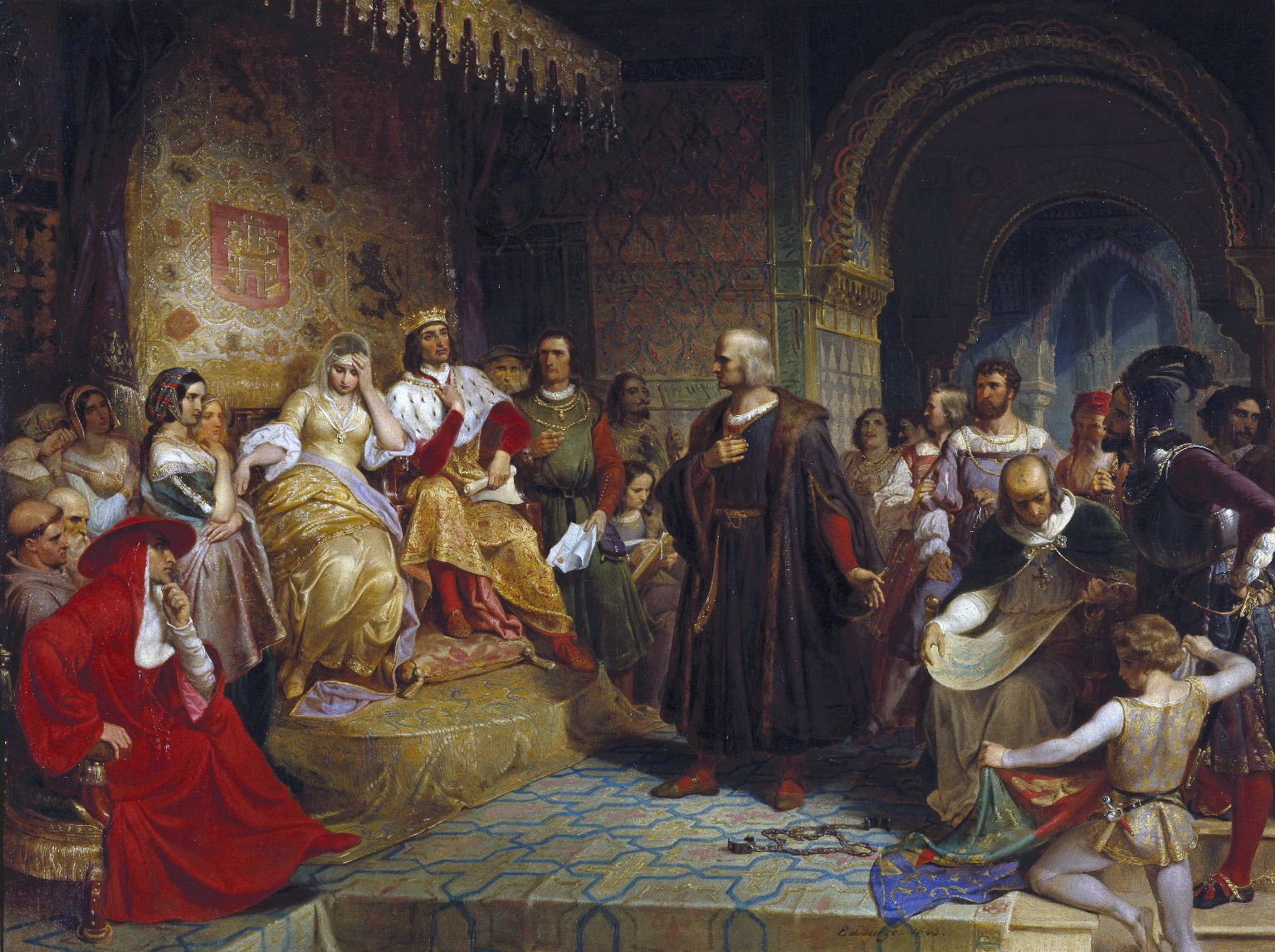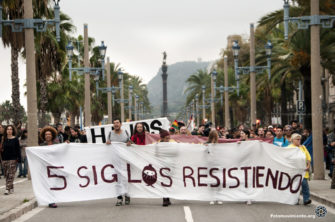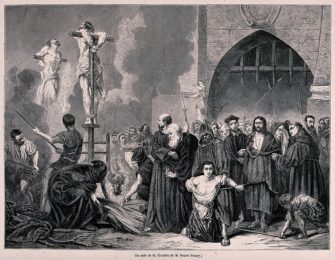
Decolonial thought presents important challenges to the academic study of religion. Numerous studies probing its relation to religion have been published in recent years within the various sub-disciplines in the field, yet the full significance decolonial thought offers for the study of religion needs yet to be unpacked. Decolonial thought and its analytic of modernity/coloniality as a theory and method for the study of religion calls for a careful reconsideration of the dominant—yet often unmarked and unnoticed–Eurocentric epistemic framework dictating the field.
The emergence of decolonial thought in the Americas is rooted in the long history of anti-colonial movement and criticism in Latin America and the Caribbean dating back to the first colonial encounter. It is, however, in the recent works of the Argentinean-Mexican philosopher Enrique Dussel and the Peruvian sociologist Aníbal Quijano that a clearer notion of decolonial thinking emerges that parallels and complements postcolonial theory as developed by Edward Said and his interlocutors. Quijano’s notion of the coloniality of power highlights the polychronic nature of power that is operative in colonialism. On this account, coloniality manifests itself beyond the historical institution of colonization.
In his genealogical study of the modern category of religion, Talal Asad shows how the category of religion came to refer to a privatized notion of religion, one which essentializes religions based on their compatibility with the universalizing norm of secular rationality. Many have argued, after Asad, that the construction and the essentialization of the category of religion is itself a problematic endeavor because it reinforces the colonial framework of knowledge (Fitzgerald 2000). Likewise, because their definitions are dependent on one another, the emergence of the secular cannot be separated from the category of religion. Recent debates about secularism interrogate the modern concept of religion, pointing out the undying influence of religion in the constitution of the modern West (Charles Taylor, Jurgen Habermas, Jose Casanova). Yet others point at secularism’s significant role in the constitution of the modern colonial world. A critical study of secularism, they insist, attends to the complex structure of power configuration and power exchange at work in (neo)colonial governance as well. These complex structures both inform the construction of the secular and obscure the normativization of Western liberalism. In other words, the secular has been serving as the ideological banner of modern Western universalism which preserves Western/Christian hegemony while depoliticizing (the notion of) religion. [1]

The modern notion of religion can therefore be viewed as a product of the emergence of modernity/coloniality. Here, secularism functions as the mirror twin of modern religion that welds together the two ends of modernity/coloniality. As Walter Mignolo and Nelson Maldonado Torres have shown, the invention of race cannot be articulated apart from the emergence of the modern concept of religion. The traditional lines demarcating ontological difference between people shifted from a religious language (religious difference) to a secular language of scientific reason (racial difference). In other words, Europe’s colonial imaginary was constituted by the newly emerging racial categories which now replaced religion’s role of drawing lines of hierarchal difference among diverse populations. From the fifteenth-century Spanish inquisition to the sixteenth-century Valladolid debate, and from the missionary activities in the new world to the rise of comparative study of religion in nineteenth century Europe, religion—in its secularized iteration—was racialized and became instrumental in marking off ontological differences which aligned with Europe’s colonial interests.[2]
The substantial role religion has played in the historical trajectory of modernity/coloniality is obscured by the hegemonic installation of secularism as the ideology dictating the Western epistemic framework. This means that the secular can be viewed as the medium through which religion enacts coloniality. The large absence of engagement with religion in the study of modernity/coloniality is symptomatic of the coloniality of knowledge which informs the religious/secular binary. Taking decolonial thought seriously means considering the challenges and insights decolonial thought offers to the study of religion, especially as they pertain to questions about methods, texts, sites, and conceptual frameworks. There is an urgent need for a Trans-Atlantic, decolonial theory (or a decolonial method) for the study of religion in which scholars re-situate the Americas and the Trans-Atlantic historical experience as primary sites for theorizing modern religion. The collusion between the colonial encounter and the emergence of the modern study of religion has been pointed out by many already. Many suggest that the eighteenth and nineteenth century of colonialism are primary reference points for this collusion. While the modern discipline of the academic study of religion was certainly informed by the more recent imperialist enterprises of Europe, there is a much older and more important time and place for understanding the symbiotic relation between the simultaneous invention of the colonial other and the modern imaginary of the West: the colonial encounter of 1492.
Using the Spanish-American colonial encounter as a frame of reference for the study of religion and modernity/coloniality offers a more efficient starting point for interrogating the fundamental epistemic assumptions inscribed in the conceptual-theoretical frameworks employed in the study of modern religion. At the same time, focusing here also helps us to read the Latin American intervention in religion from a decolonial angle, highlighting the decolonial seeds that existed all along in Latin American religious thought. Eventually, this endeavor will lead to the call for an engagement with Latin American/Caribbean intellectual traditions among scholars of religion in the North American academy.
A decolonial theory of religion would involve reconsidering the Trans-Atlantic process of imperial designing as the primary site for analyzing modern religion—a process which involves the reconfiguration of the religious (racial) cartography in the Iberian peninsula (Spanish Inquisition), the colonial encounter, and the theological-legal debates on the humanity of the colonial other (Valladolid debates).[3] Other key sites that deserve equally important attention include the various anti-colonial indigenous thoughts and movements, liberation philosophies and theologies, as well as the work of scholars who turn to the historical experience of the African diaspora in order to probe and reflect on an alternative to the modern/colonial order and its worldview that is based on anti-blackness.

The general lack of engagement with religion in the field of decolonial theory is indicative of the hegemonic secularist regime which informs the theoretical categories employed for identifying and analyzing religion. Consequently, not only is the role of religion in coloniality unexplored, but so are the complex intellectual genealogies constituting diverse forms of anti-colonial movements and ideas (many of which are inspired and informed by religious sources). This is why engaging secular texts and thinkers deserves equally as much attention as religious ideas and movements in the Americas. When considering the mutual imbrication of religious/aesthetic/cultural sensibilities and political vision in the Americas, it is highly imperative that we reconsider these secular texts (such as Frantz Fanon’s or José Martí’s) as sources for theorizing religion. Failure to do so results in the continuous loss of nuanced critiques and understandings of religion in those texts, as well as an understanding of the full implication of their political vision. The fact that the study of Latin American and Caribbean religions is primarily dominated by the study of local communities’ “practice” elements, while little attention is given to their intellectual production, might be symptomatic of the practitioner-scholar divide in religious studies that Aisha M Beliso-De Jesús has recently observed. Such a divide reproduces the academic division of labor between the West and the non-West, or between the northern hemisphere and the global south, in which the Christian West/North produces knowledge through theory (text), while the contribution of the non-Christian global South is consigned to practice (ritual).
Using the Ibero-colonial encounter as the primary reference for the study of religion and colonialism offers critical resources for reconsidering the problem of knowledge and power inscribed in the process of knowledge production within the field of religious studies. It exposes the complex layers of coloniality of power in which religion (and its study) is implicated. The analytics of modernity/coloniality allows us to see the critical importance of re-situating the study of Western religion in the Trans-Atlantic framework. At the same time, examining the colonial Americas from the Trans-Atlantic perspective leads us to a fuller understanding of Western-secular modernity which emerges with its inseparable other, coloniality.
[1] On these points see Richard King, Peter Van der Veer (here and here), Talal Asad, and Tomoko Masuzawa.
[2] These issues are discussed in the works by J. Z. Smith; David Chidester; Brent Nongbri; Charles Long, and Nelson Maldonado-Torres
[3] Lewis Hanke and Anthony Pagden have published numerous studies on the impact of the Valladolid Debates in the colonial encounter.


I would like to see you engage with Derrida in this discussion, as he has comprehensively read the genealogy of “religion” out of the dissemination of the Roman empire into the Latinized euro-mediterranean world. He draws a line from Rome to contemporary global-latinized techno-capitalism ( and therefore to the conditions that permit and are permitted by colonialism), exposing the persistent figures and movements in this chain of traditions and meanings which culminate in the modern figure of “religion.” See Faith and Knowledge: The Two Sources of Religion at the Limit of Reason Alone (1994) for the most succinct text by Derrida on these theses.
i am a Phd Candidate specialising in Translation at Unisa. As I battle to find more relevant texts for decolonisation in South Africa . Most religious texts and translation practitioners are more trapped into faith issues. There is a gap between faith and knowledge. Would like to engage more on western modernity and secularity and coloniality
Interestingly while modern West went for secularism in Europe, it’s colonies were subjected to Christianization, often violently.